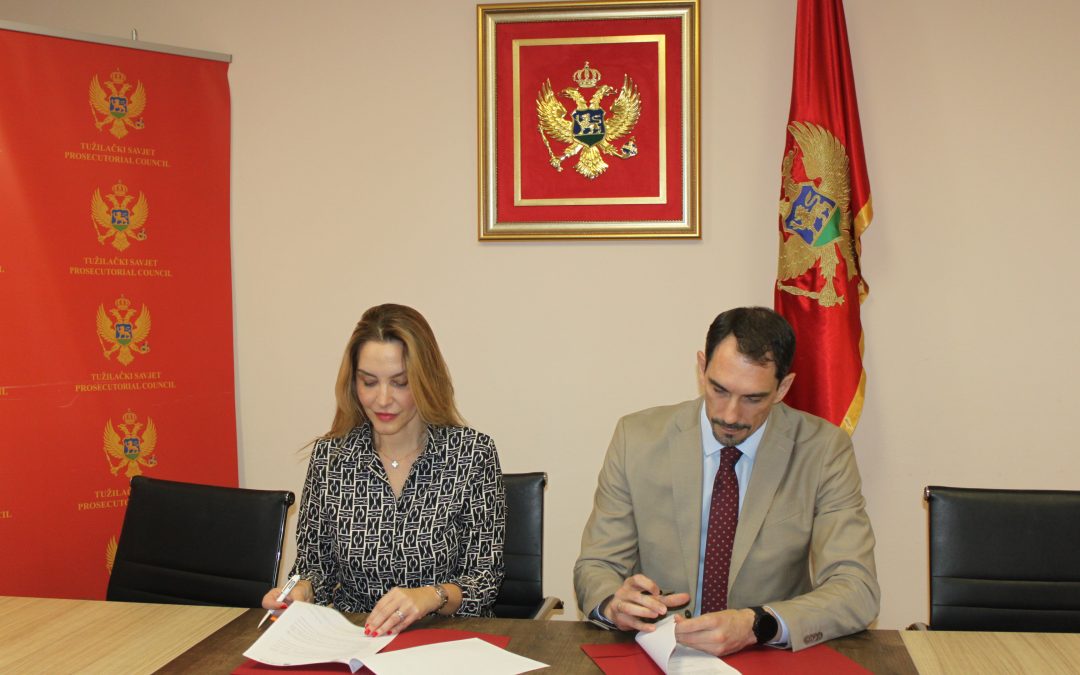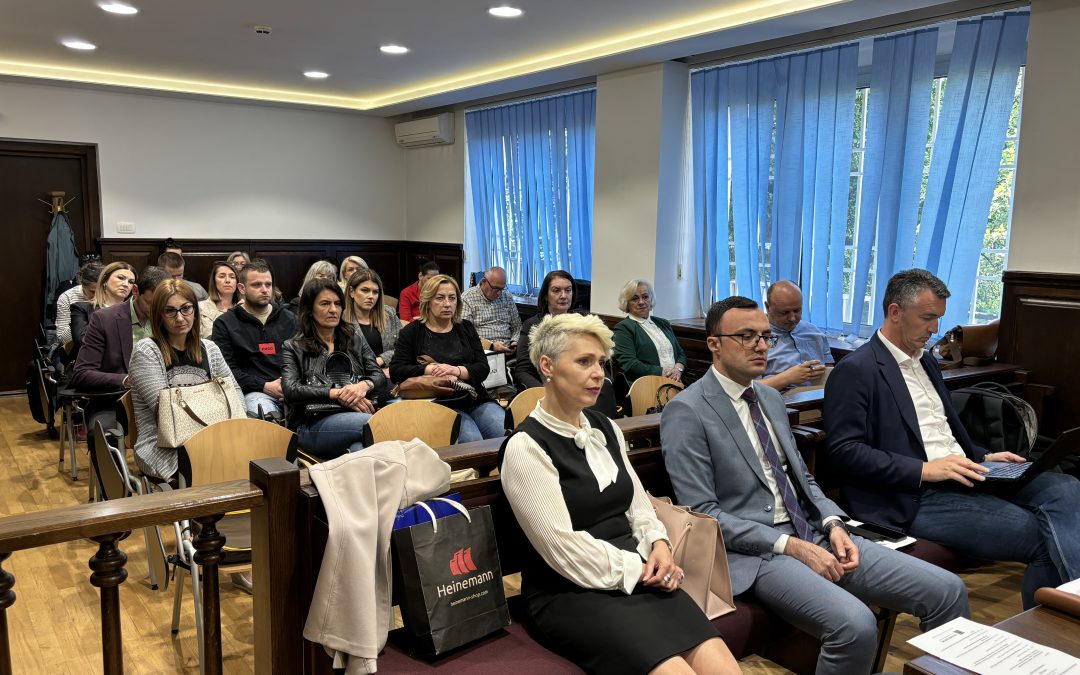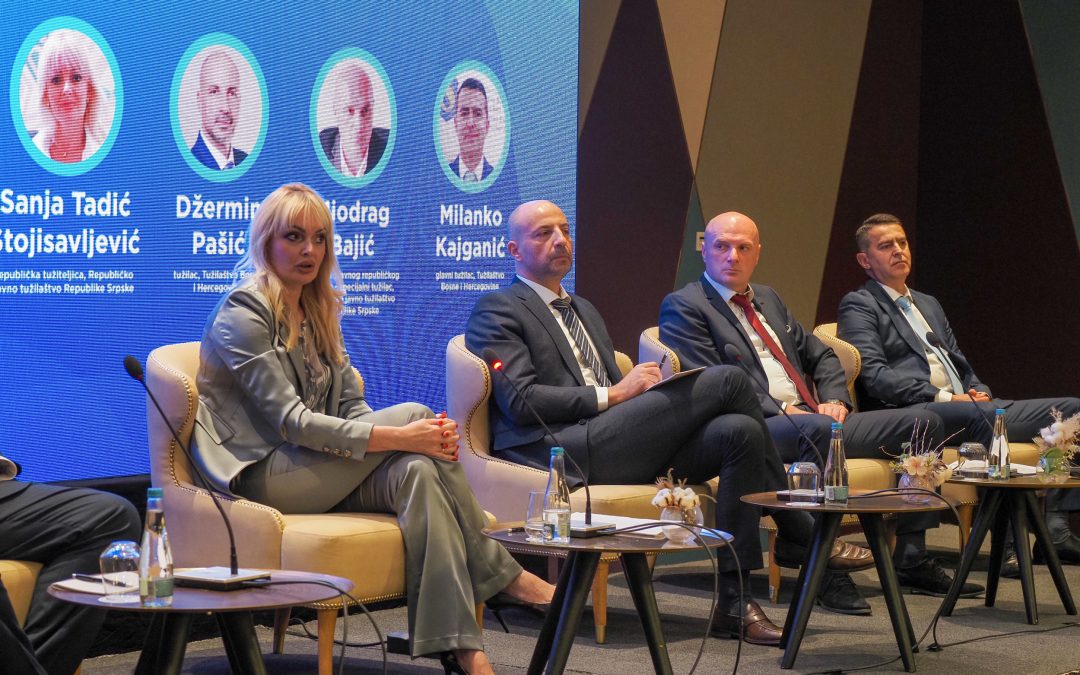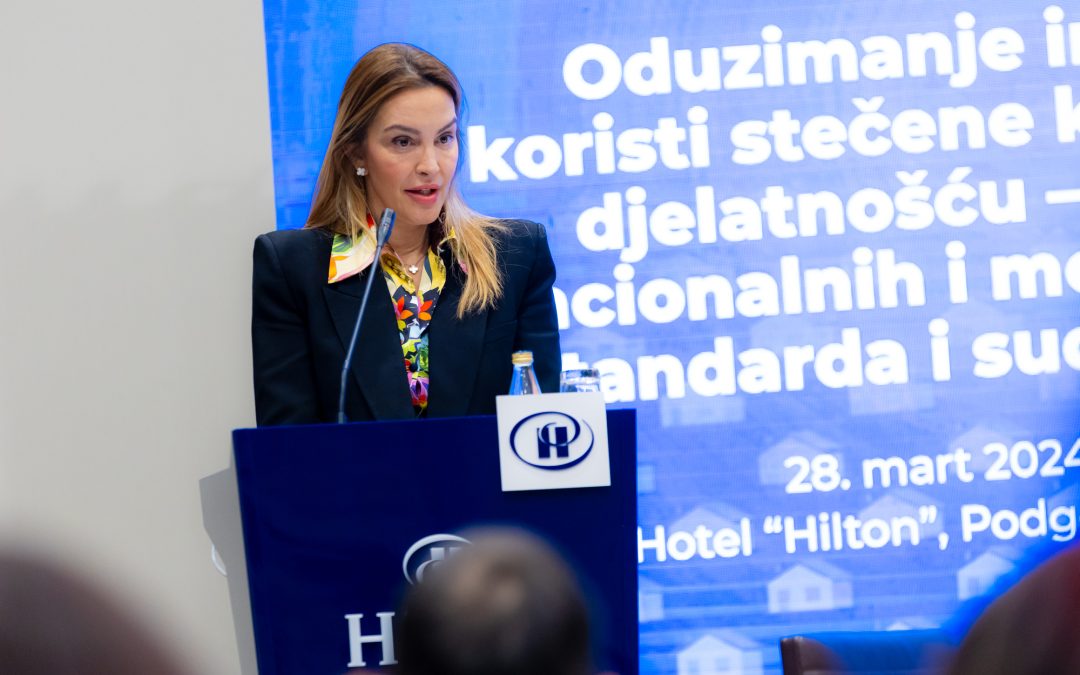The General Assembly of the United Nations adopted Resolution 75/274 on April 28, 2021, in which it declared 10th of March as the International Day of Women Judges in order to promote the full and equal participation of women at all levels of the judiciary.
Although women and men are equal under the law, women in the Western Balkans are still in an inferior position to men in all walks of public and private life. Disparity in the inclusion and treatment of women is evident in almost all aspects of their everyday life, ranging from lower employment rates and property possession to higher economic disadvantage. Furthermore, women are more likely to be affected by prominent and widespread gender-based violence. As courts are ultimately ensuring that laws are implemented and human rights are protected, the role of women judges has never been more crucial. However, women are still underrepresented in the judiciary, particularly when it comes to senior judicial leadership positions. By commemorating the International Day of Women Judges, the organisation AIRE Centre wants to highlight extraordinary work women who pave the way toward greater access to justice and protections of rights of all citizens. Representation of women in the judiciary is crucial in ensuring justice for all citizens, especially when it comes to historically marginalised groups of society. Indeed, the work of women judges has the power to shape the life of the whole community, as by punishing injustices, they are also deterring from such acts in the future.
Valerija Galić, president of the Constitutional Court of Bosnia and Herzegovina and member of the Gender Champions in the Judiciary Network, pointed out that “through the years, women in the judiciary have proven that they can deal with all the challenges brought on by the complex judiciary in Bosnia and Herzegovina”.
“It is not rare that women are appointed as heads of judicial institutions, even when it comes to the highest ones in Bosnia and Herzegovina. Currently, the three highest courts in Bosnia and Herzegovina are led by women, who justify their position and role in the judicial system of Bosnia and Herzegovina with their dedicated work. All women in the judiciary are faced with making numerous difficult decisions every day, which they stand by with their work and arguments. Therefore, I would refer back to what Ruth Bader Ginsburg, a former associate justice of the Supreme Court of the United States and an advocate for women’s rights, said: ‘Women belong in all places where decisions are being made. It shouldn’t be that women are the exception’”, said Judge Galić.
Gresa Caka-Nimani, president of the Constitutional Court of the Republic of Kosovo and member of the Gender Champions in the Judiciary Network, stated that “courts are the most effective mechanism of enforcing the equal protection of guaranteed rights”.
“Gender diverse courts not only improve inclusivity and legitimacy, but also contribute to the gradual elimination of gender stereotypes, adjustment of cultural attitudes and a gender perspective to decision-making, thus improving its quality. The latter advances both trust and access in the justice system. The future requires a continuously increased number of women judges in leadership positions. This would transform their role from judicial adjudication to leaders of reforms and shapers of governance and rule of law systems in the respective countries”, said Judge Caka-Nimani.
Sokol Sadushi, acting president of the Supreme Court of Albania, stated that despite various hardships and challenges, many women have paved the way for the progress that has been made toward gender equality and were able to overcome and rise to positions in the highest courts. He noted that “through developing regional cooperation, diversifying judicial education towards gender equality in the judicial system and promoting solidarity among male and female judges, we can succeed together at increasing gender awareness in Western Balkan”.
“It is important to highlight that women’s representation at all levels of the judiciary gives valuable contribution to enhancing the legitimacy of courts, equal access to justice and public trust. The presence of women in the court settings leads to a healthy democracy and increases credibility of the administration of justice through providing a different perspective. Therefore, adjudication with gender perspective should gain primary focus for the judicial sphere”, said Judge Sadushi, who is a member of the Gender Champions in the Judiciary Network.
Mirjana Popović, judge of the Appellate Court of Montenegro and president of the Association of Women Judges of Montenegro, pointed out that the inclusion of women in the judiciary is essential for the legitimacy of courts. On International Day of Women Judges, she reminded that “achieving equality for women judges, in terms of representation at all levels in the judiciary, is a goal that must be reached not only for women, but also because it is right and necessary to achieve a fairer rule of law and strengthen the public’s trust in the judiciary, which will consequently be perceived as more transparent, more inclusive and as a true representative of the citizens whose lives it affects”.
“We are faced with numerous gender challenges and barriers when it comes to achieving gender balance in our judiciary, starting with the process of electing female judges, appointing female judges to high positions in the judiciary, building capacity for gender equality in the judiciary, building stimulating work environment for women in the judiciary, gender-responsive organisation of work in the judiciary, etc. However, I sincerely believe that these and numerous other challenges will only serve as an incentive for everyone involved in these processes. If we successfully overcome these challenges, the judiciary can become a guarantor of equality and justice everywhere. And for everyone!” said Judge Popović.
“True justice can only be achieved when the judiciary truly reflects the diversity of the society it serves, including equal and meaningful representation of women, who bring unique perspectives and experiences to the bench. I observe that representation of women in the judiciary is improving, but struggle should go further in achieving an equitable system that reflects the talents, professionalism, and potential of all”, said Natasha Gaber-Damjanovska, judge and director of the Academy of Judges and Public Prosecutors in North Macedonia, and member of the Gender Champions in the Judiciary Network.
Olivera Pejak-Prokeš, judge of the Appellate Court in Novi Sad in Serbia, said that “women in the judiciary bring their own, different perspective and experience and jointly with men they strengthen the judicial system, contributing to more efficient protection of human rights and strengthening citizens’ confidence in the judiciary in the whole”, emphasising that this is particularly noticeable in the “area of protection against all forms of gender-based violence, protection of children’s rights, as well as victims of serious crimes”.
“In addition to the general goal of including more female judges in the judiciary, we must note that their number is not equal to the real power needed to significantly influence the judicial system. Women in the judiciary still face stereotypes and prejudices when it comes to gender equality. It is important to constantly promote the importance of women in the judiciary, to apply international standards and principles, to exchange experiences with judges from other countries”, said Judge Pejak-Prokeš and member of the Gender Champions in the Judiciary Network.
Last year, the AIRE Centre, with the support of the UK Government, established Gender Champions in the Judiciary Network, by which it rallied eminent judges from Bosnia and Herzegovina, Albania, Serbia, Montenegro, North Macedonia and Kosovo committed to strengthening gender equality in the Western Balkan countries. This is the first network bringing together judicial professionals in the region to promote gender equality. Finally, the GCJ Network will support the improvement of the professional and personal development of female judges in the region.
“For women in Balkan societies to live not only a life free of fear but also to fully participate in all aspects of it, gender-based violence must be prevented and penalised and women must be guaranteed equal access to services and equality in enjoying all their rights. Without courts ultimately ensuring that laws are implemented, we remain at the level of declarations. Hence the importance of the message the justice systems are sending by establishing this Network: We recognise the importance of gender equality and we are ready to contribute to the realisation of human rights and freedoms in the region“, said Biljana Braithwaite, programme director of the AIRE Centre for the Western Balkans.









